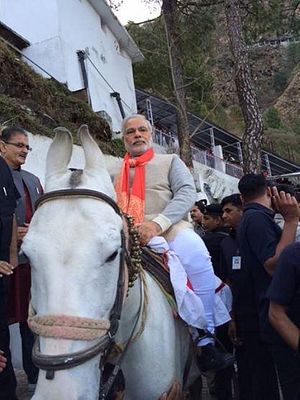Months after calling off scheduled bilateral talks following a Pakistani representative’s talks with India-based Kashmiri separatists, diplomatic interactions between New Delhi and Islamabad resumed with Indian Foreign Secretary Subrahmanyam Jaishankar’s trip across the border to meet his counterpart, Aizaz Ahmed Chaudhry. Jaishankar’s trip comes as part of a broader push for increased diplomatic interactions with countries in the South Asian Association for Regional Cooperation (SAARC).
The circumstances under which the talks were called off and their subsequent resumption raises a key question about the Kashmir issue and the role it continues to play in India-Pakistan bilateral relations: to what extent should separatist factions play a role in this relationship?
Indian Prime Minister Narendra Modi clearly has been trying to align New Delhi more closely with all Indian regions bordering Pakistan, notably Jammu and Kashmir (J&K) along the Line of Control (LoC) with Pakistan. That area has received special attention from Modi and his Bharatiya Janata Party, with frequent visits, political rallies, and, ultimately, the formation of a coalition government in the state along with the regional People’s Democratic Party (PDP).
However, the BJP has a longer history in the region. During BJP’s previous term in power, former Indian Prime Minister Atal Bihari Vajpayee’s Kashmir policy was hailed as an effective approach toward dealing with the problems of the region.
Vajpayee approached the Kashmir issue from multiple dimensions, seeking to engage both Pakistan as well as with Kashmiri separatists simultaneously. His approach was guided by the three principles of Insaaniyat (humanism), Jamhooriyat (democracy), and Kashmiriyat (Kashmir’s age-old legacy of amity).
Can Modi follow in the footprints of his BJP predecessor?
Though Modi echoed his government’s commitment to the “Vajpayee approach,” many feel his tactics reflect an extricating of the external dimension of the Kashmir issue from the internal. Modi is seeking to engage with Kashmiris directly by offering them “development,” employment, and good governance, while keeping Pakistan and the separatists at bay. Advocates of this inward-looking Kashmir policy feel that involving the separatists will only legitimize their narrative.
The only stakeholders here are India and the Kashmiri citizens of India — effort should be made toward creating a robust dialogue between the two.
The situation in Pakistan has changed from what it was seven months ago and may also induce the Modi government to revisit its Kashmir policy. Following the Peshawar school attack on late 2014 in Pakistan, in which some 140 schoolchildren were killed, Pakistan’s defense establishment has once again taken center stage.
Conspicuously, the Pakistani Army has stepped up its role in foreign diplomacy as is evident from General Raheel Sharif, the Pakistani army’s chief of staff, undertaking high-level trips abroad to the United States and elsewhere. Notably, Pakistan is also growing close to Afghanistan, receiving its newly elected president, Ashraf Ghani, and following up with reciprocal visits.
Therefore, with Pakistan’s defense establishment effectively guiding the country’s diplomacy, India would do well to tread with some restraint. After all, despite its many efforts against terror outfits, Islamabad has yet to bring to task the mastermind of the devastating 26/11 Mumbai terror attacks.
What’s more, the preventable provocations continue, with Pakistani envoy Abdul Basit meeting separatist leader Syed Ali Shah Gilani just days after the Indian foreign secretary’s visit. Earlier, Islamabad denied a visa to PDP leader Naeem Akhtar, who was scheduled to visit Pakistan as part of a track-two delegation from India. The Pakistani government reportedly justified the decision by stating that it believes Hurriyat to be the true representative of the people of Kashmir, thus denying the visa to “reiterate this stand.”
Observers in India are now wondering: will Pakistan now ignore the voice of the moderate pro-India parties in Kashmir?
Skepticism apart, Modi knows ingenuity in Pakistan policy will go a long way toward establishing his legacy. His party’s inroads into Kashmiri politics are well-timed. Being the astute statesman that he is, Modi will not completely alienate any faction in the region. Alliances like that with Sajjad Lone – the ex-separatist leader who came together with the BJP in the recently concluded Jammu and Kashmir state elections – is a testimony to this. Modi may use such partnerships to engage in back-channel diplomacy with Pakistan to ultimately neutralize Kashmir issue.
Jhinuk Chowdhury is a freelance journalist based in India who writes on South Asian affairs. Follow her @jhinuk28.

































